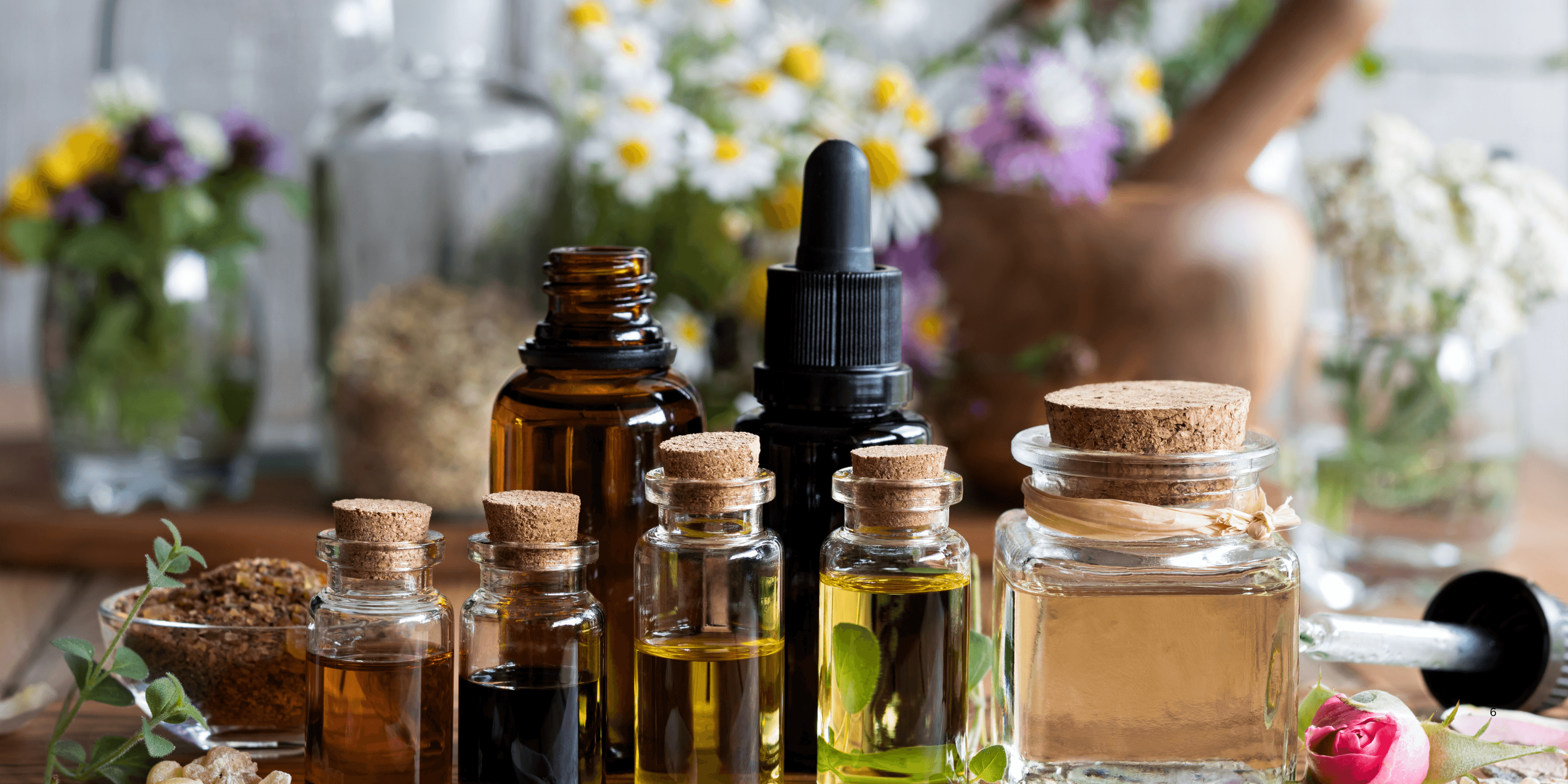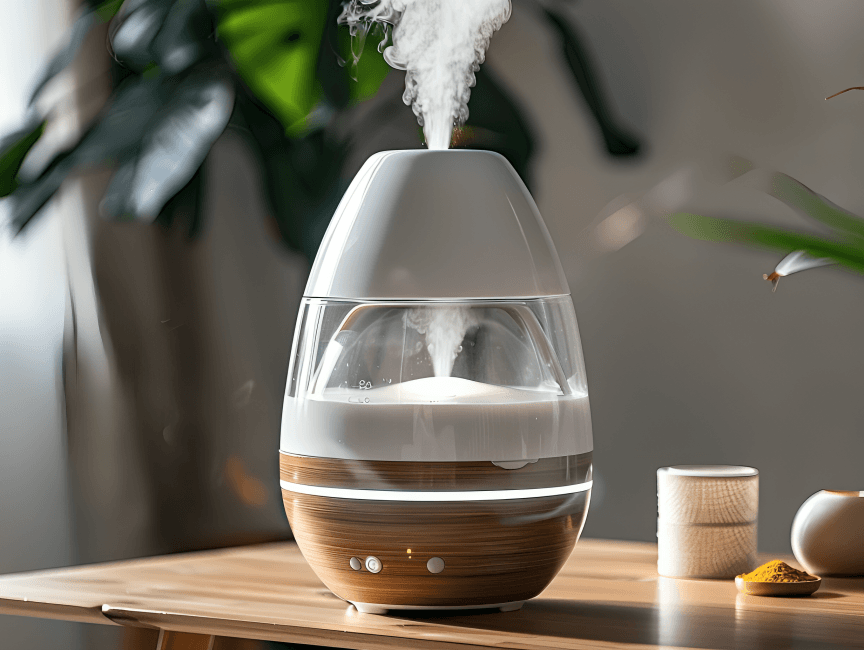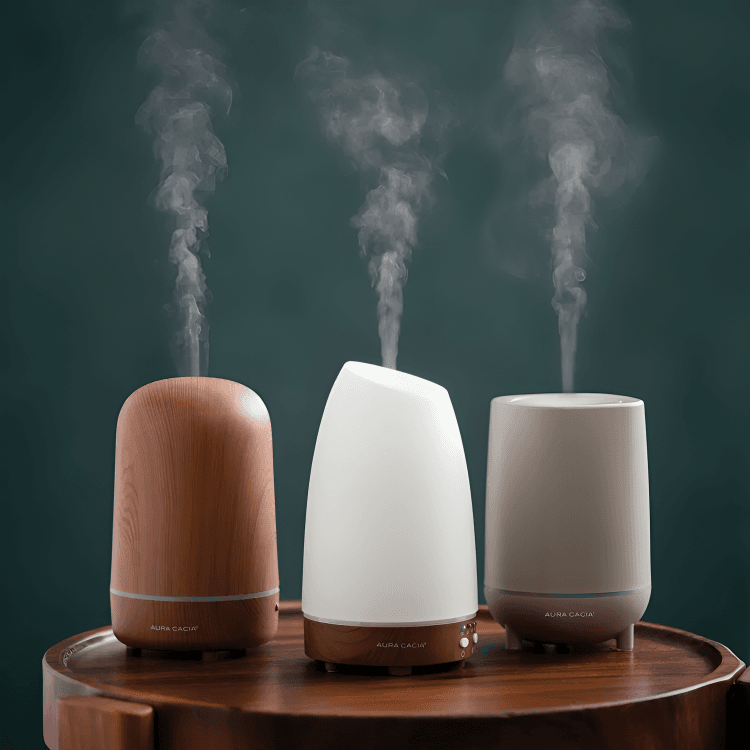
“
Using essential oils for stress relief has become a popular natural approach to calming the mind and body. These oils, extracted from plants, carry powerful scents that can influence emotions and help reduce anxiety. Many people turn to this gentle therapy to create relaxing environments, improve sleep quality, and manage daily pressures. 1
1
”
The ancient Greek physician Hippocrates noted aromatherapy’s calming effects centuries ago, suggesting that certain plant scents can positively impact mood and reduce emotional stress. 1
Doctors today recognize that inhaling essential oils activates the limbic system in the brain, which controls emotions, helping to soothe anxiety and promote relaxation naturally. 2
Lavender oil is widely studied for its calming properties, shown to lower heart rate and blood pressure, making it ideal for stress relief when inhaled or applied topically. 3

Diffusing essential oils in a room allows the aromatic molecules to enter the air, which, when inhaled, triggers brain responses that reduce cortisol, the body’s primary stress hormone.
Applying diluted essential oils to pulse points such as the wrists, neck, or temples provides a direct and fast way to inhale calming scents that help reduce feelings of nervousness and tension.4
Blending oils like bergamot and chamomile creates a unique synergy that amplifies their calming effects, offering a more powerful natural remedy for stress relief than using individual oils. 5
Diluting essential oils properly with carrier oils is essential to prevent skin irritation and enhance absorption; this careful preparation increases the therapeutic benefits while maintaining safety. 6
Citrus oils, such as sweet orange and lemon, have bright, uplifting fragrances that can improve mood and reduce feelings of anxiety, making them excellent choices for daytime stress relief. 7
The rich, woody scent of sandalwood is known to promote mental calmness and improve sleep quality, which is crucial for managing stress and restoring emotional balance after a demanding or anxious day. 8

Essential oil diffusers equipped with timers help regulate scent exposure, ensuring consistent benefits in reducing stress without overwhelming the senses, offering a balanced aromatherapy experience.
Personal inhalers or simply placing a few drops of essential oil on a tissue provide portable, discreet methods of aromatherapy, enabling stress relief anytime, whether at work or during social interactions. 9
Rosemary oil is valued for its ability to enhance memory and cognitive function, indirectly reducing stress by improving mental clarity and reducing frustration caused by forgetfulness or mental fog. 10
When combined with deep breathing techniques, inhaling essential oils greatly enhances relaxation by slowing respiration, making it an effective practice to manage acute stress episodes. 11
Adding lavender oil to a warm bath creates a soothing environment that calms both the body and mind, helping to reduce cortisol levels and ease anxiety accumulated throughout a busy, stressful day. 12
Spraying essential oil-infused mists on pillows or linens promotes restful sleep by creating a calming atmosphere, which is a critical factor in managing stress and supporting overall emotional well-being. 13
The simple ritual of applying essential oils can act as a mindfulness exercise and provide a moment of calm focus that helps reduce the psychological impact of daily stressors. 14

Incorporating essential oils into yoga or meditation routines deepens relaxation effects by engaging the senses, grounding the mind, and enhancing the mental clarity needed to manage stress effectively.
Individual scent preferences matter greatly since people respond differently to essential oils; selecting personally appealing aromas increases the likelihood of effective stress relief and consistent use. 15
Philosophers and wellness experts highlight how sensory experiences, such as inhaling essential oils, can anchor the mind in the present moment, reducing overthinking and mental clutter that contribute to stress. 16
Growing clinical evidence supports essential oils as a safe, accessible, and natural tool to manage stress, offering a natural way to boost emotional health without meds or invasive treatments. 17


